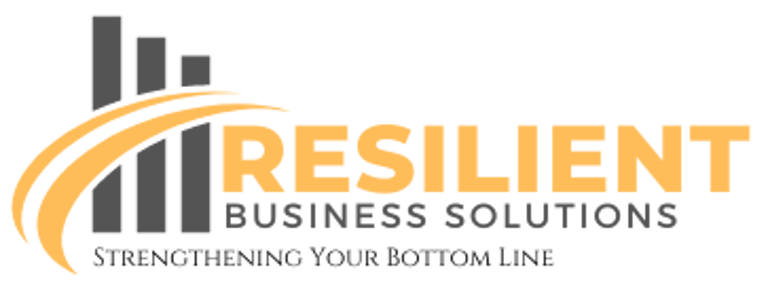The Ultimate Bookkeeping Checklist for Small Business Owners: What to Track and How
Bookkeeping is the cornerstone of financial management for small businesses, providing a systematic approach to tracking income, expenses, and cash flow. This blog post breaks down the basics of bookkeeping, highlighting its importance for tax compliance, financial analysis, and business growth. From understanding key financial details to creating a personalized bookkeeping checklist, you’ll gain practical tips to streamline your financial processes and maintain accurate records. Learn how efficient bookkeeping practices can save time, enhance decision-making, and set your business up for long-term success.
1/7/20256 min read


Essential Bookkeeping Checklist for Small Business Owners: Key Items to Track and Manage
For small business owners, bookkeeping is much more than a routine administrative task—it’s the foundation for financial clarity and business success. Proper bookkeeping ensures that all income and expenses are accurately tracked, providing insights into the financial health of the business. This systematic approach not only simplifies tax preparation but also empowers entrepreneurs to make informed decisions, optimize cash flow, and achieve their long-term goals. Whether you’re new to bookkeeping or looking to refine your practices, mastering the basics is essential for sustainable growth.
Understanding Bookkeeping Basics
Bookkeeping is a fundamental practice that holds paramount importance for small business owners. It serves as the backbone of a business's financial health, ensuring that all financial activities are accurately recorded and easily accessible. By maintaining a systematic approach to bookkeeping, entrepreneurs can gain a clearer understanding of their business's financial standing, enabling data-driven decision-making.
At the core of effective bookkeeping is income tracking. This involves documenting all revenue generated by the business, whether from sales, services, or other sources. Regularly recording income not only provides insight into cash flow but also assists in forecasting future revenue. Moreover, accurate income tracking ensures that business owners can meet their tax obligations promptly and avoid potential penalties.
Equally vital is the categorization of expenses. By systematically classifying costs into categories such as operational expenses, marketing expenses, and administrative costs, small business owners can identify where their money is going. This categorization aids in budgeting, helps uncover potential areas for cost savings, and facilitates financial analysis. Understanding expense trends over time allows for more accurate projections and aligns spending with business goals.
Furthermore, accurate record-keeping is essential for compliance with local regulations and tax laws. Small business owners are often required to keep detailed financial records, not just for their benefit, but also for potential audits. Proper documentation ensures that they have access to necessary information when required, saving time and reducing stress during tax season or financial reviews.
By understanding these bookkeeping basics, small business owners can appreciate the value of implementing a structured bookkeeping checklist. This organized approach not only simplifies financial management but also enhances overall business performance, providing a solid foundation for growth and sustainability.
Essential Financial Details to Track
For small business owners, maintaining a clear overview of essential financial details is crucial for long-term success and sustainability. Regularly monitoring key financial metrics ensures that the business remains healthy and can adapt to any changes in its financial landscape. One of the primary financial details to understand is sales and revenue, where tracking daily, weekly, and monthly totals can help identify trends and inform business decisions. Recording these figures accurately allows for timely assessments of sales performance and revenue generation.
Expenses are another vital component; they can be categorized into fixed and variable. Fixed expenses, such as rent and salaries, remain relatively stable, while variable expenses, like utilities and inventory costs, fluctuate. It is advisable for small business owners to track these expenses monthly, allowing for effective budgeting and cost management. Tools like accounting software or spreadsheets can automate much of this tracking, providing real-time data on financial health.
Accounts receivable and payable also play a significant role in cash flow management. Keeping an up-to-date record of what is owed to the business and what the business owes others helps ensure that cash flow remains steady. Monitoring these accounts on a weekly basis can help preempt potential financial issues. Payroll tracking is equally important; ensuring timely payment of employees can affect morale and retention rates.
Tax obligations cannot be overlooked. Small business owners should track applicable taxes on a quarterly basis, making sure they set aside funds to meet these obligations when due. Finally, monitoring cash flow is essential for understanding the business's financial condition. An effective cash flow statement should be reviewed weekly or monthly to predict and manage incoming and outgoing cash in a timely manner.
By utilizing accounting tools such as QuickBooks or FreshBooks, small business owners can streamline the tracking of these financial details. These tools provide automated features and analytics, allowing for more informed financial decisions while ensuring comprehensive oversight of the business’s finances.
Creating Your Bookkeeping Checklist
Establishing an effective bookkeeping checklist is an essential task for small business owners striving to maintain organized financial records. The goal is to develop a personalized checklist that encompasses all necessary bookkeeping tasks while fitting seamlessly into the owner’s routine. The process, while straightforward, requires attention to detail and adaptability.
To begin, it is crucial to identify specific bookkeeping tasks relevant to your business operations. These may include tracking expenses, invoicing clients, managing payroll, reconciling bank statements, and preparing for tax submissions. Consider incorporating additional items as the business evolves; being adaptable ensures that the checklist remains useful over time.
Next, establishing a timeline for each task is vital. Categorize tasks on a daily, weekly, or monthly basis, depending on their complexity and frequency. For instance, daily tasks might involve updating receipts and tracking cash flow, whereas monthly tasks could include preparing financial statements and performing bank reconciliations. A clear timeline will help maintain consistency and eliminate the possibility of overlooking important responsibilities.
Choosing the right format for your checklist is another key aspect. Many small business owners prefer digital formats due to their ease of access and flexibility. Utilizing accounting software or simple spreadsheet applications provides functions like reminders and data analysis, which can enhance the bookkeeping process. However, some may find manual checklists more intuitive. Whichever format is chosen, it is important to ensure that it aligns with your business's workflow and personal preferences.
In fostering a disciplined bookkeeping routine, this checklist should not be viewed merely as a to-do list but as a tool for financial clarity. Regularly revisiting and revising your checklist will ensure that it remains a relevant and effective resource, ultimately supporting your business’s financial health and sustainability.
Tips for Maintaining Efficient Bookkeeping Practices
Maintaining efficient bookkeeping practices is crucial for small business owners looking to streamline their financial management and make informed decisions. One of the most effective strategies is to leverage accounting software. These tools not only automate numerous bookkeeping tasks but also help in organizing financial data systematically. By selecting software that suits the size and needs of your business, you can simplify processes such as invoicing, expense tracking, and reporting. Popular options include QuickBooks, Xero, and FreshBooks, each offering various features designed to enhance efficiency.
Another key practice is to automate repetitive tasks wherever possible. Many accounting software solutions offer automation features that enable you to set up recurring invoices and schedule payments. This greatly reduces the time spent on routine bookkeeping duties, while also minimizing the risk of human error. By automating these tasks, business owners can redirect their focus to more strategic activities that add value to their operations.
Regularly reviewing financial reports is also essential in maintaining effective bookkeeping. Schedule monthly or quarterly checks to assess your income statements, balance sheets, and cash flow statements. This practice not only keeps you updated on your business’s financial health but also helps in identifying trends and areas needing attention. With timely insights, you can make proactive decisions and adjustments to your financial strategies.
Finally, consulting with accounting professionals is of paramount importance. While self-management of bookkeeping may suffice initially, as a business grows, professional guidance can offer valuable perspectives. Accountants or bookkeepers can help ensure compliance with financial regulations, optimize tax strategies, and provide insights based on financial data. Their expertise can aid in avoiding costly mistakes and implementing best practices for financial management.
As You Can See
In the fast-paced world of small business, effective bookkeeping is not just a necessity—it’s a powerful tool for success. By implementing a structured approach to tracking income, managing expenses, and maintaining compliance, business owners can enhance their financial oversight and make data-driven decisions. With the right tools, a tailored checklist, and a commitment to efficiency, bookkeeping becomes a manageable and rewarding part of your operations. Investing time in these practices today will set the stage for a more organized, sustainable, and prosperous future for your business.
When You Are Ready
Ready to simplify your business operations? At Resilient Business Solutions, we’re here to take the stress out of so many of your business tasks, so you can focus on what you do best — growing your business. Whether you need help with bookkeeping, invoicing, managing payables and receivables, content creation, or a new website design, we’ve got you covered. Contact us today to learn how we can support your business with reliable, expert services. Let’s build a resilient future together!
Strengthening Your Bottom Line
Customized financial support to empower your business success.
Get Our Free 50+ Page Small Business Success Guide Now
© 2024. All rights reserved.
